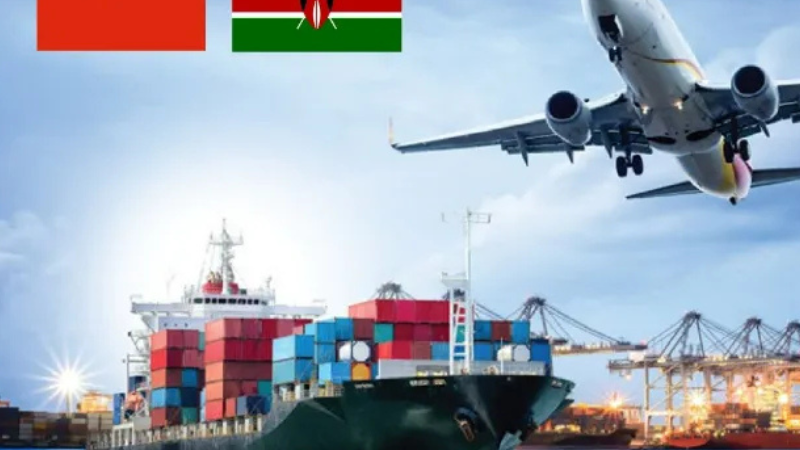Learn how to import from China to Kenya with this complete guide. Discover sourcing tips, shipping options, taxes, and business regulations.
Summary
Importing from China to Kenya has become increasingly popular thanks to China’s competitive prices and vast product selection. Whether you’re a new entrepreneur or an established business looking to scale, understanding the import process is key to a smooth and profitable venture.
Introduction: Why Import from China?
China is the world’s manufacturing hub, offering almost everything — from electronics and clothing to industrial equipment — at affordable prices. Kenyan businesses are increasingly leveraging Chinese suppliers to cut costs and increase profit margins. But importing isn’t just about placing an order; it involves compliance, logistics, and strategy.
Let’s walk you through it all.
Step-by-Step Guide to Importing from China to Kenya
1. Identify the Right Products
Choose high-demand, profitable, and lightweight products (to reduce shipping costs). Popular categories for Kenyan importers include:
-
Electronics (phones, accessories)
-
Fashion & textiles
-
Home appliances
-
Beauty products
-
Automotive parts
🛠️ Pro Tip: Use Google Trends and Jumia/Kilimall sales trends to evaluate demand in Kenya.
2. Find Reliable Suppliers
You can find suppliers through:
-
Online Platforms: Alibaba, Made-in-China, DHGate
-
Sourcing Agents: Professionals who help negotiate and inspect on your behalf
-
Trade Fairs: Canton Fair (held twice yearly in Guangzhou)
Check for:
-
Verified suppliers with trade assurance
-
Product certifications (especially electronics)
-
Positive reviews and response rate
3. Request Samples
Before bulk ordering:
-
Test quality
-
Compare options
-
Avoid potential scams
Most suppliers will reduce sample costs if you proceed with a full order.
4. Confirm Your Order and Agreement
Discuss:
-
Price
-
Minimum Order Quantity (MOQ)
-
Delivery time
-
Packaging and labeling requirements
Get a Proforma Invoice (PI) and sign a Purchase Agreement.
5. Choose a Shipping Method
Options include:
| Method | Delivery Time | Best For |
|---|---|---|
| Air Freight | 3-10 days | Small, urgent shipments |
| Sea Freight | 30-45 days | Large bulk orders |
| Courier (DHL, FedEx) | 3-7 days | Samples or small packages |
| Consolidated Shipping (via freight forwarder) | 15-30 days | Cost-sharing for smaller volumes |
Air freight is fast, but expensive. For bulk goods, sea freight is more economical.
6. Clear Customs in Kenya
You’ll need:
-
Import Declaration Form (IDF)
-
Proforma invoice
-
Packing list
-
Bill of Lading or Airway Bill
-
Certificate of Conformity (CoC) – required for regulated goods
-
KRA PIN
Use a clearing agent to avoid delays and errors.
7. Pay Import Duties & Taxes
The Kenya Revenue Authority (KRA) will charge:
-
Import Duty: 0%–25%
-
VAT: 16%
-
Railway Development Levy (RDL): 1.5%
-
Import Declaration Fee (IDF): 3.5%
Use the TRADE (TradeNet) portal to estimate import tax.
8. Receive and Sell Your Goods
Once cleared, transport goods to your warehouse or storefront. Now you’re ready to sell — online or in-store.
Consider platforms like:
-
Jumia Kenya
-
Kilimall
-
Facebook Marketplace
-
Own website or shore
User Testimonials
🔹 “I started with just 10 phone accessories from Alibaba. Within a month, I was making double the profit!” – Mercy W., Nairobi
🔹 “Using a sourcing agent saved me time and ensured I got legit suppliers.” – Kevin M., Mombasa\
Final Verdict
Importing from China to Kenya is a profitable venture if done right. With careful planning, proper documentation, and reliable shipping, you can start or scale your business successfully. Start small, learn the ropes, and grow consistently.
FAQs
Q: Do I need a business license to import to Kenya?
A: Not always for small quantities, but a registered business is recommended for scaling and easier customs clearance.
Q: Can I import directly to Kenya without visiting China?
A: Yes. Most transactions are done online, and freight forwarders handle logistics on your behalf.
Q: What’s the cheapest way to ship from China to Kenya?
A: Consolidated sea shipping is the most cost-effective for medium-sized loads.
Q: How do I avoid scams when buying from Chinese suppliers?
A: Use verified suppliers on trusted platforms and always request samples first.
Q: Can I pay Chinese suppliers with M-Pesa?
A: No. Use platforms like PayPal, bank transfer, or Alibaba’s secure payment systems.
Conclusion
Importing from China can unlock serious opportunities for entrepreneurs in Kenya. With this guide, you’re equipped to source smartly, ship efficiently, and build a profitable venture. The key is to start small, research thoroughly, and leverage trusted partners.




